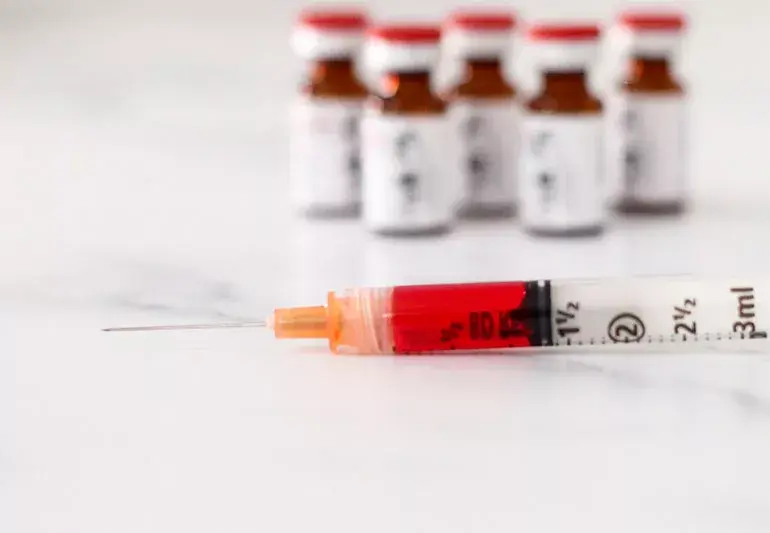
At Functional Family Care, we are committed to providing comprehensive care to help you achieve optimal health. One of the treatments we offer is hydroxocobalamin injections, a form of vitamin B12 that can be highly beneficial for those with a deficiency. In this blog post, we’ll explore the benefits, risks, frequency of injections, available lab testing, and the differences between hydroxocobalamin and cyanocobalamin.
Benefits of Hydroxocobalamin Injections
Hydroxocobalamin is a natural form of vitamin B12 that is highly bioavailable and effective in treating B12 deficiency. Some of the key benefits include:
- Improved Energy Levels: Vitamin B12 is essential for energy production, and hydroxocobalamin can help alleviate fatigue and boost energy.
- Enhanced Neurological Function: Adequate B12 levels are crucial for maintaining healthy nerve cells and cognitive function.
- Red Blood Cell Production: B12 is necessary for the production of red blood cells, which can help prevent anemia.
- Detoxification: Hydroxocobalamin can help detoxify the body by binding to cyanide and other toxins, making it particularly useful for smokers and those exposed to certain chemicals.
Risks of Hydroxocobalamin Injections
While hydroxocobalamin injections are generally safe, there are some potential risks and side effects to be aware of:
- Injection Site Reactions: Some individuals may experience pain, redness, or swelling at the injection site.
- Allergic Reactions: Although rare, some people may have an allergic reaction to hydroxocobalamin.
- Imbalance of Other Nutrients: High doses of B12 can sometimes lead to imbalances in other B vitamins, so it’s important to monitor levels regularly.
Frequency of Injections
The frequency of hydroxocobalamin injections can vary depending on the severity of the deficiency and individual needs. Typically, injections are administered:
- Initial Treatment: Once a week for 4-6 weeks to quickly restore B12 levels.
- Maintenance: Once a month or as recommended by your healthcare provider to maintain adequate levels.
Lab Testing for B12 Deficiency
To determine if you have a B12 deficiency and to monitor ongoing levels, I can order the following lab tests:
- Serum Vitamin B12: Measures the amount of B12 in your blood.
- Methylmalonic Acid (MMA): Elevated levels of MMA can indicate a B12 deficiency.
- Homocysteine: High levels of homocysteine can also suggest a B12 deficiency.
- Complete Blood Count (CBC): Helps assess overall health and detect anemia.
Differences Between Hydroxocobalamin and Cyanocobalamin
Hydroxocobalamin and cyanocobalamin are both forms of vitamin B12, but they have some key differences:
- Hydroxocobalamin: A natural form of B12 that is more bioavailable and has a longer half-life in the body. It binds more strongly to plasma proteins, allowing it to stay in the bloodstream longer and requiring fewer doses1.
- Cyanocobalamin: A synthetic form of B12 that contains a cyanide molecule. It is commonly found in supplements and fortified foods. While effective, it may not be as easily absorbed by the body and can be less suitable for individuals with certain health conditions1.
Conclusion
Hydroxocobalamin injections can be a highly effective treatment for vitamin B12 deficiency, offering numerous health benefits. At Functional Family Care, I am here to help you determine if this treatment is right for you and to provide ongoing support and monitoring. Contact us today to schedule a consultation and learn more about how we can help you achieve optimal health.
Warm regards,
Damoine Ricks, FNP



